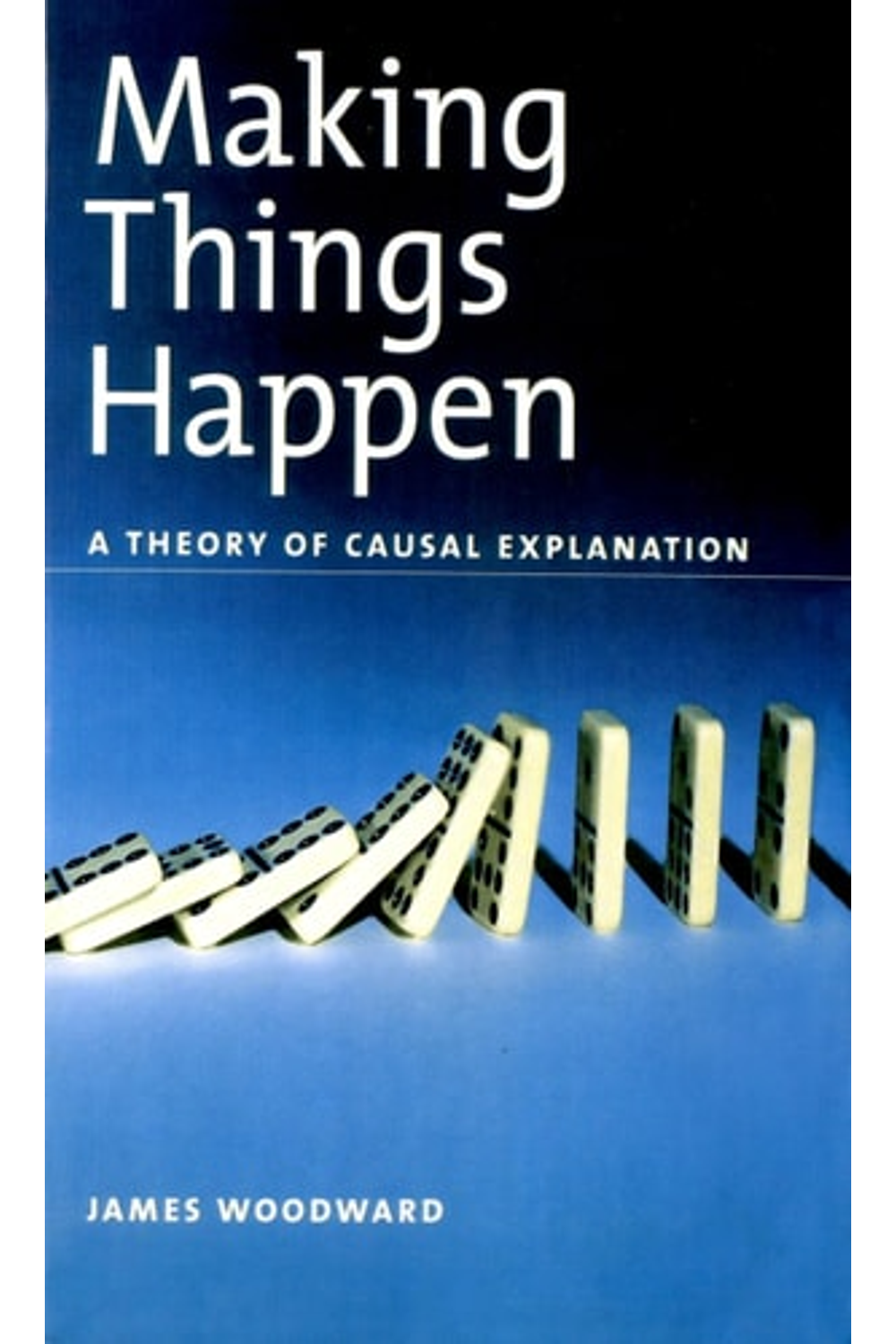Discover the definitive explanation of cause and effect with James Woodward’s “Making Things Happen: A Theory of Causal Explanation.” This pivotal work, part of the Oxford Studies in the Philosophy of Science series, revolutionizes how we understand causation by arguing that a causal relationship is essentially one that can be manipulated to produce a specific effect. Woodward expertly blends philosophical rigor with practical application, drawing on insights from experimental design, econometrics, and diverse scientific fields. Unlike traditional approaches, Woodward’s “manipulationist” account provides a powerful framework for analyzing causal claims in science and everyday life. He not only defends his theory against common criticisms but also demonstrates its superior ability to navigate the challenges that plague other models of explanation. This accessible paperback is perfect for philosophers, scientists, and anyone seeking a deeper, more actionable understanding of how causes truly work. Explore the groundbreaking ideas that have shaped modern philosophy of science.
Making Things Happen: A Theory of Causal Explanation (Oxford Studies in the Philosophy of Science)
31,82 $
In stock
In Making Things Happen, James Woodward develops a new and ambitious comprehensive theory of causation and explanation that draws on literature from a variety of disciplines and which applies to a wide variety of claims in science and everyday life. His theory is a manipulationist account, proposing that causal and explanatory relationships are relationships that are potentially exploitable for purposes of manipulation and control. This account has its roots in the commonsense idea that causes are means for bringing about effects; but it also draws on a long tradition of work in experimental design, econometrics, and statistics.
Woodward shows how these ideas may be generalized to other areas of science from the social scientific and biomedical contexts for which they were originally designed. He also provides philosophical foundations for the manipulationist approach, drawing out its implications, comparing it with alternative approaches, and defending it from common criticisms. In doing so, he shows how the manipulationist account both illuminates important features of successful causal explanation in the natural and social sciences, and avoids the counterexamples and difficulties that infect alternative approaches, from the deductive-nomological model onwards.
Making Things Happen will interest philosophers working in the philosophy of science, the philosophy of social science, and metaphysics, and as well as anyone interested in causation, explanation, and scientific methodology.
| Authors | |
|---|---|
| Binding | |
| Condition | |
| ISBN-10 | 0195189531 |
| ISBN-13 | 9780195189537 |
| Language | |
| Pages | 432 |
| Publisher | |
| Year published | |
| Weight | 618 |
| Edition | 1 |
| Dewey decimal | 122 |
- Additional information
- Currencies
- USD – United States dollar
- EUR – Euro
- GBP – Pound sterling
- CNY – Chinese yuan
- BRL – Brazilian real
- MXN – Mexican peso
- JPY – Japanese yen
- PHP – Philippine peso
- THB – Thai baht
- PLN – Polish złoty
- CAD – Canadian dollar
- MYR – Malaysian ringgit
- AUD – Australian dollar
- TWD – New Taiwan dollar
- CZK – Czech koruna
- SEK – Swedish krona
- HUF – Hungarian forint
- ILS – Israeli new shekel
- CHF – Swiss franc
- HKD – Hong Kong dollar
- DKK – Danish krone
- SGD – Singapore dollar
- NOK – Norwegian krone
- NZD – New Zealand dollar



